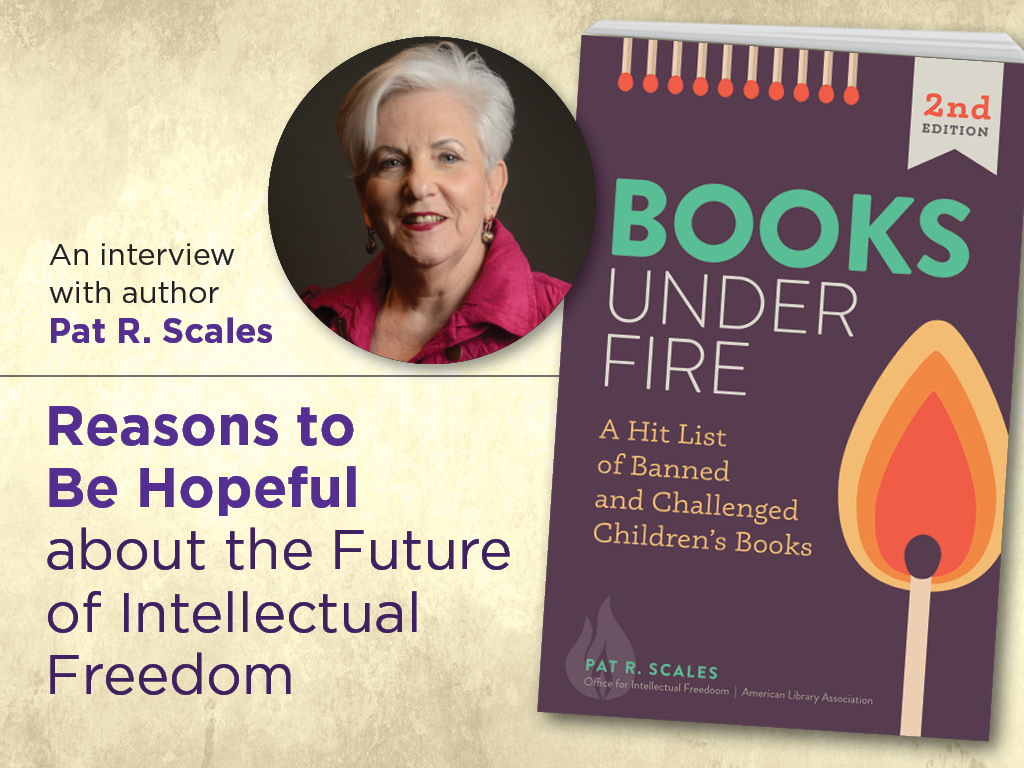The Trying Present, and the Bright Future, for Warriors Against Book Bans: An Interview with Author and #ALAAC23 Honoree Pat R. Scales
Recipient of The Freedom to Read Foundation's 2023 Roll of Honor Award, Pat R. Scales is a longtime First Amendment advocate. She is a former chair of ALA’s Intellectual Freedom Committee and serves on the Board of Advisors of the National Coalition against Censorship. Also a past president of the Association of Library Service for Children (ALSC), Scales is the author of such books as Books under Fire: A Hit List of Banned and Challenged Children's Books and Teaching Banned Books: 32 Guides for Children and Teens. We had the chance to catch up with her at the 2023 ALA Annual Conference, where we discussed the alarming jump in the censorship and outright banning of children’s books which some deem to be controversial or objectionable.
Let’s talk about the 1980s censorship wave versus now. What’s different between the two?
 It’s very different. In the 1980s we did have organized groups that made long lists of books that they wanted out of libraries. Now, such organized groups mobilize via the internet. They post their grievances on social media platforms, and they get thousands of followers. In the 1980s, we had some strong groups that were pretty much localized in specific areas of the country. Now these organized groups have chapters all over the nation. Also in the 1980s censorship battles might make the front page of the morning paper, then go out with the trash the very next day. Today, news of these battles is available in perpetuity to mobilize both censorship advocates and intellectual freedom defendants.
It’s very different. In the 1980s we did have organized groups that made long lists of books that they wanted out of libraries. Now, such organized groups mobilize via the internet. They post their grievances on social media platforms, and they get thousands of followers. In the 1980s, we had some strong groups that were pretty much localized in specific areas of the country. Now these organized groups have chapters all over the nation. Also in the 1980s censorship battles might make the front page of the morning paper, then go out with the trash the very next day. Today, news of these battles is available in perpetuity to mobilize both censorship advocates and intellectual freedom defendants.
What has surprised you most about recent book ban efforts?
I think how quickly the efforts went viral, and the overreach of politicians. They are using book bans as political talking points on the campaign trail. The fact that public libraries have fallen prey to the challenges amazes me too. It used to be mostly schools that were under siege. People are actually entering public libraries to use the libraries’ computer search engines to identify books about people of color and LGBTQIA+ identity, the two topics on which politicians and censors have placed their focus.
What has pleased you most about how educators and library workers have dealt with attempted book bans?
I've been extremely proud of school and public librarians, who have shown a great deal of courage and bravery in standing up to school boards and library boards, and to these groups who have tried to defund libraries. You hear stories about people who are quitting their jobs because they fear for their lives. But there are many stories of librarians who are standing up and speaking out on behalf of library patrons who want access to the censored materials.
Are there reasons to be hopeful about intellectual freedom in the foreseeable future?
I think we have a lot of reasons to be hopeful about intellectual freedom. First of all, we've got a lot of organizations joining with the American Library Association to fight these book bans. There are lawsuits and investigations into the book bans happening in various states. I think if we can prevail on a few of these, some of these groups and politicians might rethink the issue. You never know. We can't see into the future. But I am very hopeful that young people are going to eventually stand up and say enough is enough. We just have to give them the microphone.
Learn more at the ALA Store.
